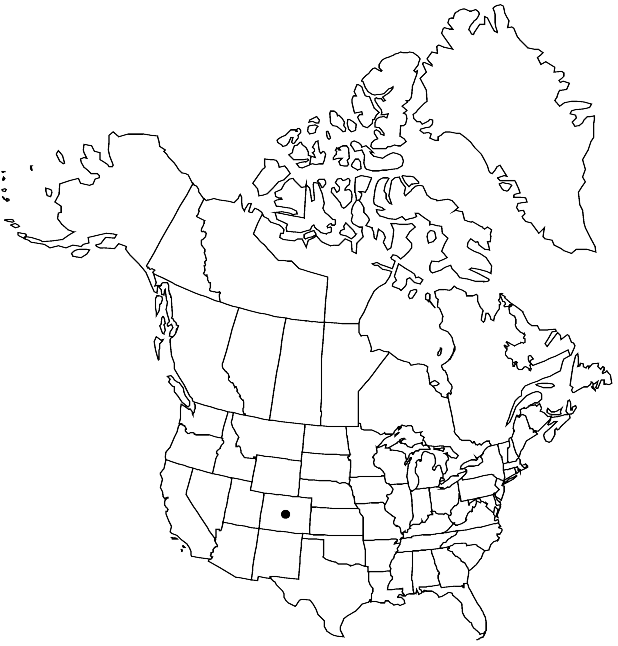Difference between revisions of "Descurainia kenheilii"
Harvard Pap. Bot. 12: 395, fig. 1. 2007.
FNA>Volume Importer |
imported>Volume Importer |
||
| (One intermediate revision by the same user not shown) | |||
| Line 46: | Line 46: | ||
|publication year=2007 | |publication year=2007 | ||
|special status= | |special status= | ||
| − | |source xml=https:// | + | |source xml=https://bitbucket.org/aafc-mbb/fna-data-curation/src/2e0870ddd59836b60bcf96646a41e87ea5a5943a/coarse_grained_fna_xml/V7/V7_825.xml |
|tribe=Brassicaceae tribe Descurainieae | |tribe=Brassicaceae tribe Descurainieae | ||
|genus=Descurainia | |genus=Descurainia | ||
Latest revision as of 22:36, 5 November 2020
Perennials; (short-lived, dwarf); eglandular; sparsely pubescent throughout, trichomes dendritic. Stems (simple from base), erect, usually unbranched, rarely branched distally, 0.1–0.15 dm. Basal leaves: petiole 0.3–0.6 cm; blade pinnate, oblanceolate in outline, lateral lobes (2–4 pairs), oblanceolate to obovate, (1–2.5 × 0.5–1 mm), margins entire. Cauline leaves subsessile; blade smaller distally, distal lobes narrower, surfaces sparsely pubescent. Racemes not elongated in fruit. Fruiting pedicels erect to ascending, straight, 1–1.5 mm. Flowers: sepals ascending, yellowish, ovate, 1–1.4 mm, pubescent; petals narrowly oblanceolate, 1–1.5 × 0.3–0.4 mm; median filaments 0.6–1 mm; anthers (broadly ovate), ca. 0.1 mm. Fruits erect, linear, torulose, 6–10 × 1–1.3 mm, (straight); valves each with distinct midvein; septum with distinct midvein; ovules 4–8 per ovary; style obsolete, 0.1–0.2 mm, glabrous. Seeds uniseriate, reddish brown, oblong, 1–1.2 × 0.5–0.6 mm.
Phenology: Flowering Aug–Sep.
Habitat: Alpine tundra, talus slopes
Elevation: 3600-3800 m
Discussion
Descurainia kenheilii is known from the high alpine areas in Archuleta and San Juan counties.
Selected References
None.
